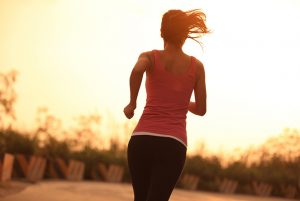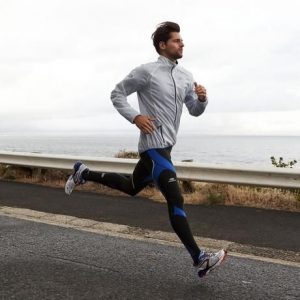
Image courtesy: pinterest.com
You should consider going back to doing sports. And seriously! This should be one of the top 5 resolutions at the beginning of the year for every single one of us. If you play sports in order to sleep well at night and facilitate falling asleep, then you should know that being good in sports also requires having a good sleep.
Just how it is integral to have the right equipment for your workout, it is also important to get a decent amount of sleep throughout the day. If you notice, there is a growing trend to hire fitness equipment – be it in schools, gyms, or for personally – and they do it because they do not want to invest too much in something that might not work out for them. For example, if you were in charge of getting gym gear in school, you would definitely not want your (or the school’s) invested money to go to waste and so, you might just look for options! I mean, it is a win-win situation for both parties, right? Nonetheless, to our topic of sleep, it might just help you to better your cognitive processes and improve on your muscle memory! So, why would you cut on sleep?
To further make it easier for you to understand the importance of sleep, here are a few pointers that might just help you make an informed decision.
Move more to sleep better

Image courtesy: www.pinterest.com
The balance between sports and sleep is essential because one favors the other. Just like poor choice of drinks can kill your sleep, poor quality sleep makes exercising less effective (it increases the feelings of tiredness, decreases the recovery, increases the negative effects induced by the exercise like the aches, the inflammation, the heat tolerance, etc.). And conversely: doing sports or physical activity generally promotes better quality sleep, due to energy expenditure, hormonal stimulation and better regulation of sleep / wake rhythm (also known as the circadian rhythm).
You can pick up any sports according to your interest. But choosing a two-player game like tennis or badminton would prove more beneficial as your body is in motion the entire time you play any of these. But finding a partner might be difficult sometimes.
It is a healthy fatigue: falling asleep occurs faster, with fewer nocturnal micro-awakenings. Sports accentuate the depth of sleep. Exercising acts mainly on the time spent in deep slow sleep, which is much more effective for recovery than paradoxical sleep. But this effect only exists if you use more than 60% of your maximum VO2, that is to say when it becomes difficult to speak without being breathless while practicing your physical activity. This deep sleep is promoted by the practice of sports, which is itself dependent on the quality of the recovery, and so the deep slow sleep. Indeed a virtuous circle.
Should we sleep more when we are sporty?

Image courtesy: www.pinterest.com
No, playing sports does not require sleeping more. It is also not necessary to sleep more to be more successful at sports. There is no relationship between sleep duration and performance, but rather between deep (slow) sleep duration and motor learning (a new technical gesture or tactical scheme). A long nap (90 minutes, in other words the duration of a deep sleep cycle) can encourage this type of learning.
One of the first criteria for the quality of our sleep is the feeling of tiredness on waking and during the day. If you feel fit, it is very likely that your sleep is good. Some research has shown that sports (just like a hot bath) can increase the body temperature which then – by rebound effect – decreases thus facilitating falling asleep. On the contrary, others conclude that activity must be stopped at least 4 hours before bedtime. There is no consensus today on this point. The only thing in common is that if the sport is practiced regularly at the end of the day and integrated into its daily activity it does not seem to disturb sleep.
Exercising too much may disrupt your sleep

Image courtesy: www.pinterest.com
If you have back pains, exercising too much may not be recommended. This is where adjustable beds like the DynastyMattress DM9000s with lumbar support can be really helpful. A disturbed quality of sleep is one of the first signs of overwork. Still, it must be particularly intensive. A British study has just shown it (5) to highly trained cyclists. The deterioration of the quality of sleep (less effective sleep, frequent awakenings) occurs in just nine days, but also a degradation of mood and performance, with more stress. Getting adequate sleep, whether through the use of sleeping aids like those from Kona Kratom or otherwise, is an essential part of any training program for athletes and everyone who embarks on sports challenges.
Sleep disorders and sports: any benefit!

Image courtesy: www.pinterest.com
Regarding the sleep disorders, any type of a physical activity is beneficial regarding the sleep apnea syndrome. By activating the tone of the pharyngeal muscles, it decreases the severity of the symptoms. Same thing when it comes to the “Restless Legs” syndrome, where it seems to raise the threshold of pain and thus reduce the awakenings due to pain.
As for insomnia, the importance and role of sports lies in the notion of ritual. The sporting activity allows a “let go”, a zone of decompression between the activity of the day and the night. When it comes to other sleep disorders, like the so-called sleep-wake insomnia (nocturnal awakening and difficulty going back to sleep), the fact that physical activity increases deep slow sleep limits the risk of micro-awakenings.
Does the type of sport practiced have an effect on falling asleep?

Image courtesy: www.pinterest.com
The effect on sleep differs according to the type of physical activity. It seems that ball games, dynamic muscle building, exercises that require attention, competitive spirit and tactics may more or less delay sleep. The neuro-stimulations they generate increase the level of vigilance.
On the contrary, aerobic physical activities (running, cycling, elliptical trainer, treadmill, etc.), even long-lasting (> 45 minutes) at an intensity that can be high (even the famous” fractional ” 80% of the VO2 max) or swimming in “self-hypnosis” mode (coordination and rhythm, in a non-competitive and pleasant mode), performed in a low light environment (outdoors), promote sleep. To incorporate such activities as swimming, you can either join a swimming club; or do these exercises in your backyard swimming pool. If you don’t already have one, you might want to think about installing a brand new swimming pool in your garden, backyard, or deck by contacting a local pool builder. The reason being, swimming pools might not only add a new dimension to your home, but they might also help your children learn physical activities from a young age.
5 precautions to preserve your sleep when you are sporty

Image courtesy: www.pinterest.com
- Allow 2 to 3 hours between intense physical activity and bedtime. If it is too close to bedtime, it may for some people delay falling asleep. This time varies according to each one of us but one observes a “training” with the late sporting activity: the more one is accustomed to train at late hours, the less the consequences on the sleep are important. What reassure those who have no other way than to play sports after a day of work: an exercise at the end of the day does not disturb sleep, at most it increases the duration of falling asleep .
- To help lower your body temperature, you can take a cool shower after exercising. Few studies also advise the hot bath whose benefits would be due to the “rebound effect” on body temperature.
- Common sense advice: minimize light sources that cause micro-alarms and noise in the bedroom, clean bedding, limit room temperature (18 degrees ideally) to reduce “latency”, between bedtime and falling asleep.
- Take a nap, whenever possible. The ideal is a 90-minute nap following intense sporting effort. A nap of 15-20 minutes is already restorative. The importance of the nap is well demonstrated, especially when the training load increases.
- Everything is in the regularity, weekends included! Staggering one’s sleep and waking hours at the end of the week actually leads to a desynchronization of the sleep / wake rhythm that the person takes several days to get back.
